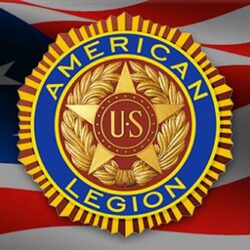According to a 2023 study published by Syracuse University’s D’Aniello Institute for Veterans & Military Families:
Approximately 1.4 million Veterans experience food insecurity;
Only 4.9% receive Supplemental Nutrition Assistance Program (SNAP) benefits;
Food insecurity is linked to poor physical and mental health, including an increased risk of suicide.
Research by USDA suggests Veterans may not be fully prepared for the life changes that accompany separating from the military. Many individuals need time to adjust to living in a civilian environment. Some are discharged with physical disabilities and may have difficulty finding work that sustains them financially. Paying for medications may decrease the amount of money they have available to buy food.
In addition to physical conditions, time in the service may lead to mental health concerns. Certain mental health conditions can make it difficult for Veterans to adjust to the unique demands of the civilian workplace. Data also shows that being female or serving after 9/11 are risk factors for elevated food insecurity.
How can VA social workers connect Veterans to food sources?
“Our greatest asset in meeting our goal to end food insecurity for every Veteran and family is VA’s integrated approach to health care,” said Dr. Christine Going, senior advisor of the Food Security Program Office. “The electronic health record allows for seamless communication among providers ensuring that once a Veteran is identified as food insecure, the entire health care team has awareness and provides patient-centered care that is coordinated and unified.”
The electronic health record is one way food insecurity can be detected. As with other important screenings, a clinical reminder is set up to notify a Veteran’s primary care doctor to complete an annual interview on the topic. Any clinician may use the two-question screening tool if a need is suspected.
Additionally, the Assessing Circumstances and Offering Resources for Needs (ACORN) screening is a tool developed by VA in conjunction with Office of Health Equity and the National Social Work Program to help uncover needs in the areas of food, housing, utilities and other strategic areas that affect Veterans’ ability to thrive.
What other help can VA social workers give?
VA social workers can share information about the USDA National Hunger Hotline, 1-866-3-HUNGRY or 1-877-8-HAMBRE, open from 7 a.m. to 10 p.m. EST. Veterans can speak with a representative who will find food resources such as meal sites, food banks and other social services available determined by address or zip code. Veterans can also text the automated service at 914-342-7744 with a question containing a keyword such as “food,” “summer,” “meals” to receive an automated response identifying local resources.
VA food pantries provide the goods
Some VA offices offer a mobile food pantry (MFP) like those in Texas in the cities of Austin, Temple and Waco. Celia Feller, clinical social worker and project manager for all three, said it takes 10-12 volunteers at each site to support the program. In 2023, the MFP served 4,625 households, 13,699 individuals, 130 walkups and 1,066 Veteran households. This took 317 volunteers and 25,413 pounds of food.
“As you can see from the number of households, we serve a diverse group of families and individuals. Our food pantry is called Joining Hands Feeding Veterans. In 2018, we were awarded the VA Community Partnership Award called Return on Partnership. We do not turn anyone away. And we cannot do it without volunteers. At this time, it is a mobile distribution,” Feller said.
The March 2024 food distribution event at the Waco site drew large crowds of people looking forward to receiving boxes of food items. Volunteers steadily packed food, greeted people and assessed needs. By the morning’s end, approximately 135 families were served.
